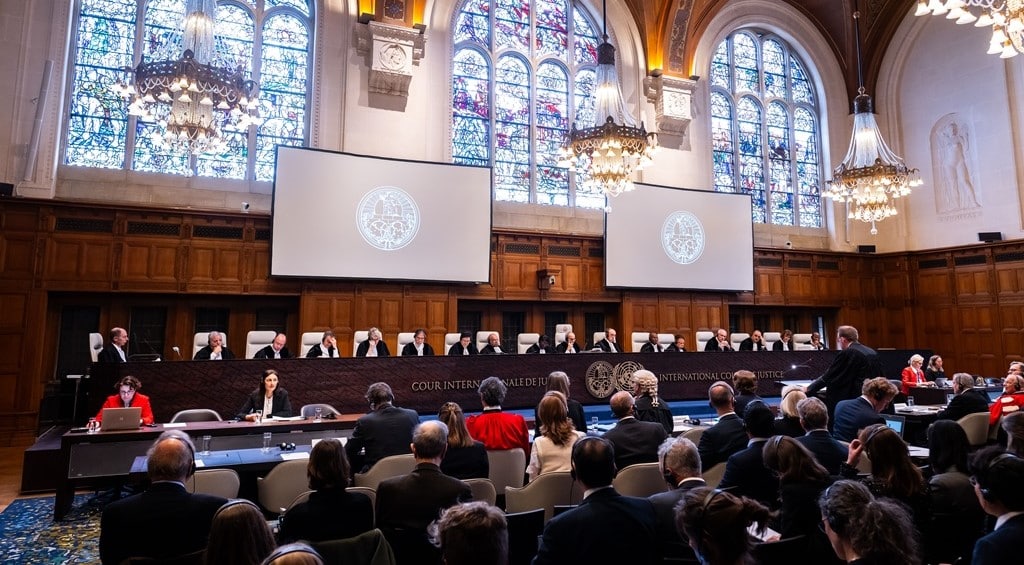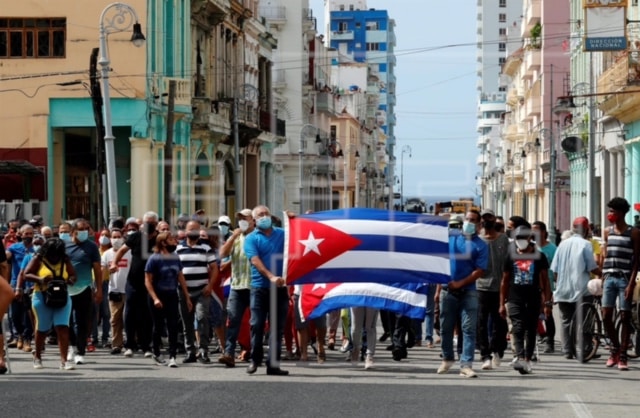2 de abril 2024

ICJ Rules Against Nicaragua's Request For Germany to Halt Arms Sales to Israel

PUBLICIDAD 1M
PUBLICIDAD 4D
PUBLICIDAD 5D

Tired of living in misery and backwardness, thousands of Cubans went out onto the streets in 2021 and again in 2024 to call for an end to the system that’s violating their freedoms. Photo from July 11, 2021: Confidencial / EFE
The leftist governments in Latin America with the greatest vocation for authoritarianism have sprung from the Cuban system, which was their guide and inspiration throughout the Cold War. They inherited a clear tendency towards opacity, illusion, and rigidity when dissent overwhelms the institutions and anger pours out onto the streets.
We saw this again in recent days in Cuba, where there were new replicas of past social explosions, leading hundreds of Cubans – in Santiago. Baymo, el Cobre and other cities of eastern and western Cuba – to peacefully march and shout in the island’s streets. They demand electricity, food, transportation, but also freedom, peace, “homeland and life,” and the removal of the incompetent authorities.
This replica of the social explosion of July 11 -12, 2021, becomes more evident when we observe the government’s reaction. The repression has appeared punctually and exacting, in a failed attempt to contain the wave of indignation. The repetition is also evident in the authorities’ subsequent discourse, justifying or rendering invisible the protests.
They attribute these demonstrations – which have been permanent and most of the times silent and silenced, at least since the end of the impasse with Obama between 2015 and 2016 – as focused on the outside world, seeing them as a reaction to the strengthening of the United States’ coercive measures under Donald Trump, and to a lesser extent under Joe Biden.
That evasion of responsibility in their discourse ignores a precise reading of the cries in the street. The yelling is directed against the island’s rulers, not against the United States, and specifically against Cuban President Miguel Diaz Canel. The people protesting hold that leadership responsible for their terrible living conditions, the lack of a future for their children, and for the continuing imprisonment of over a thousand Cubans who in 2021 did the same thing: go out to protest peacefully. These demonstrators have now been locked up for going on three years.
The criminalization of protest in Cuba begins with that official distortion of the cries in the street. Where the demonstrator’s chorus: “Down with Diez-Canel!” the authorities read: “Down with imperialism!” The dyslexia of power steals the words and arbitrarily alters their sense, under the supposition that only power has the authority to speak for all.
If anyone challenges that authority, as have the hundreds of people from Bayamo and Santiago we’ve seen over these past days, the only admissible official explanation is that the “enemies of the Revolution” have incited a loyal population to rebel. In the entire history of Latin America, rarely has such an organic underestimation of the popular will been seen.
What’s certain is that the most extensive protests in decades against the Cuban government have occurred under the presidency of Miguel Diaz Canel, before, during and after the pandemic. The responsibility for the horrendous economic management of the country, badly hidden under a geopolitical triumphalism that leans on alliances with opportunistic allies like those of Russia and Venezuela, is at the roots of the disaster.
This article was published in Spanish in Confidencial and translated by Havana Times. To get the most relevant news from our English coverage delivered straight to your inbox, subscribe to The Dispatch.
PUBLICIDAD 3M
Historiador y ensayista cubano, residente en México. Es licenciado en Filosofía y doctor en Historia. Profesor e investigador del Centro de Investigación y Docencia Económicas (CIDE) de la Ciudad de México y profesor visitante en las universidades de Princeton, Yale, Columbia y Austin. Es autor de más de veinte libros sobre América Latina, México y Cuba.
PUBLICIDAD 3D